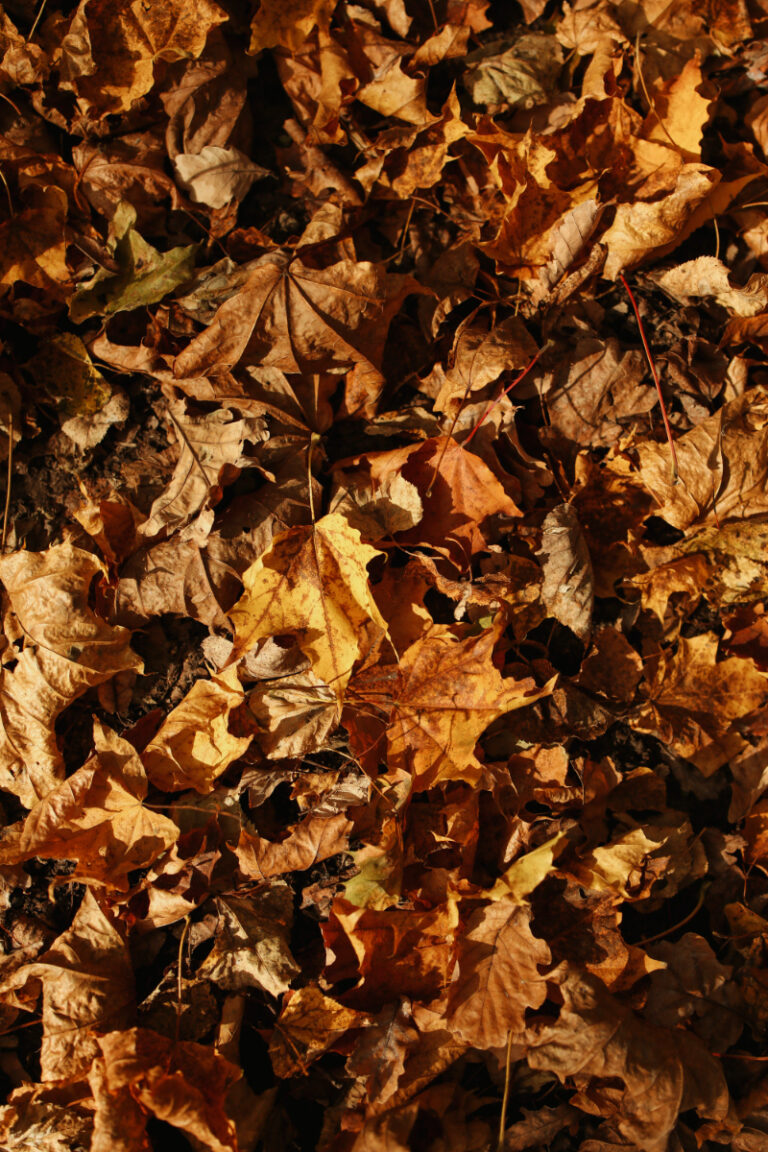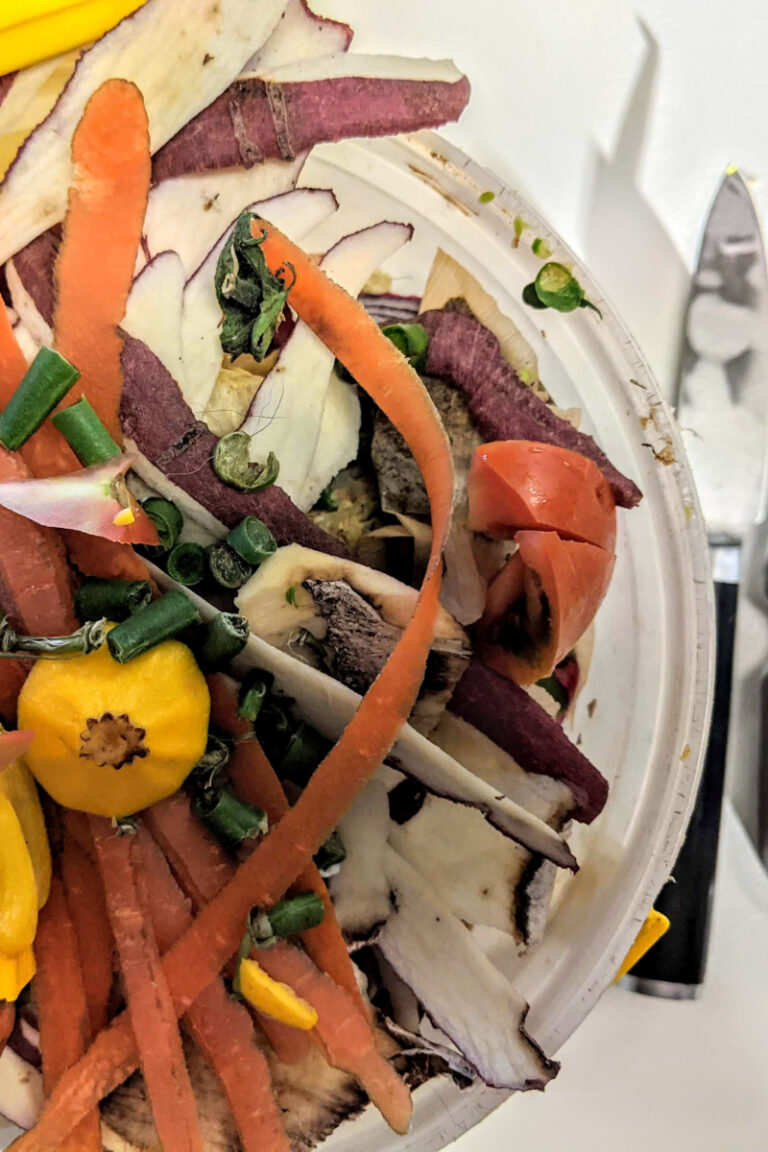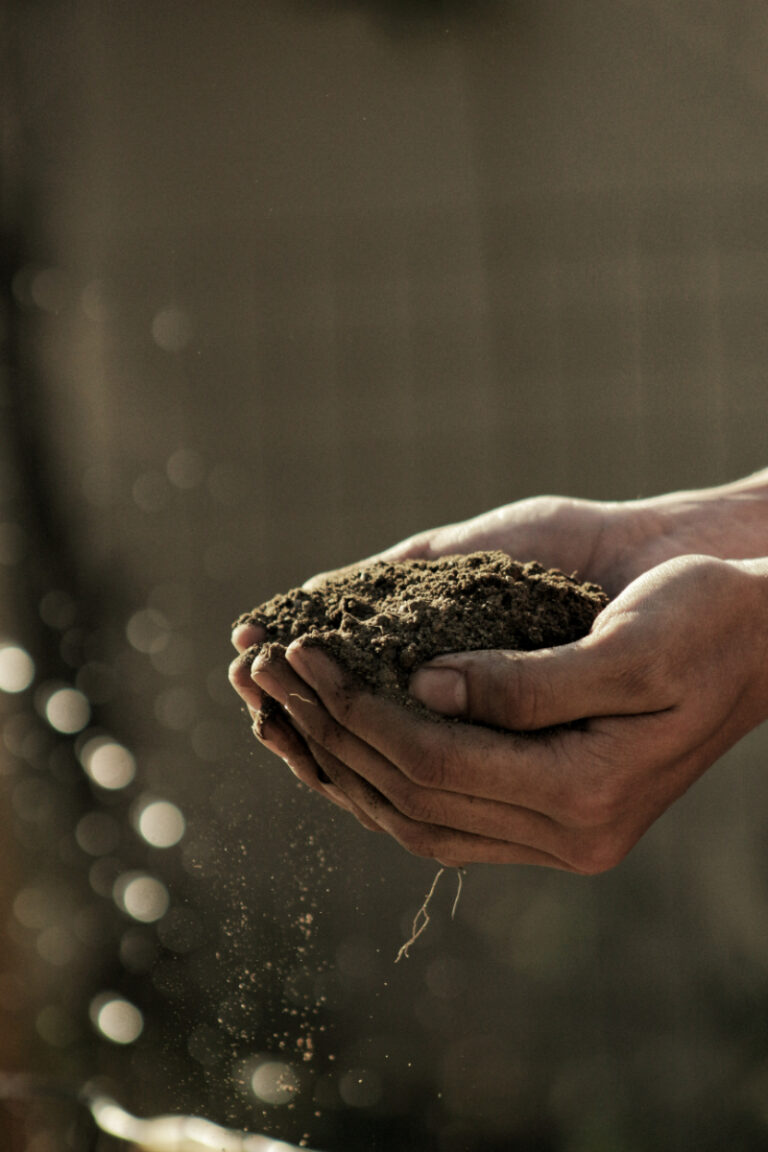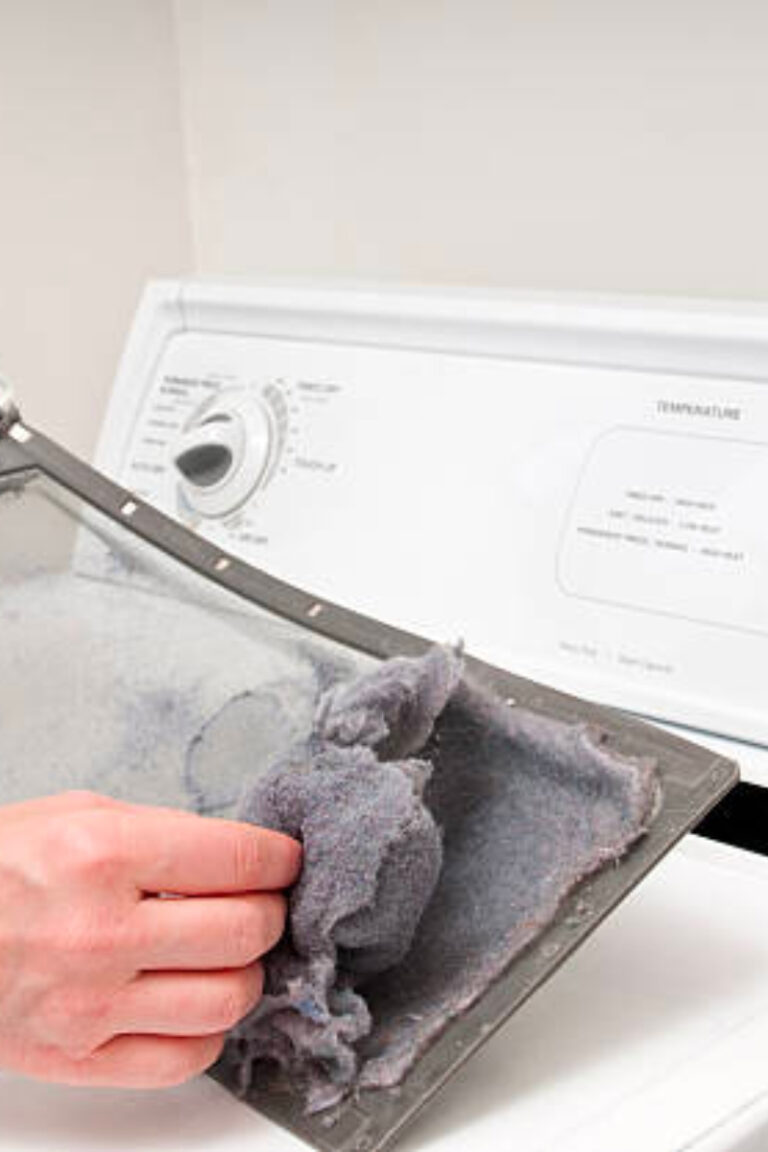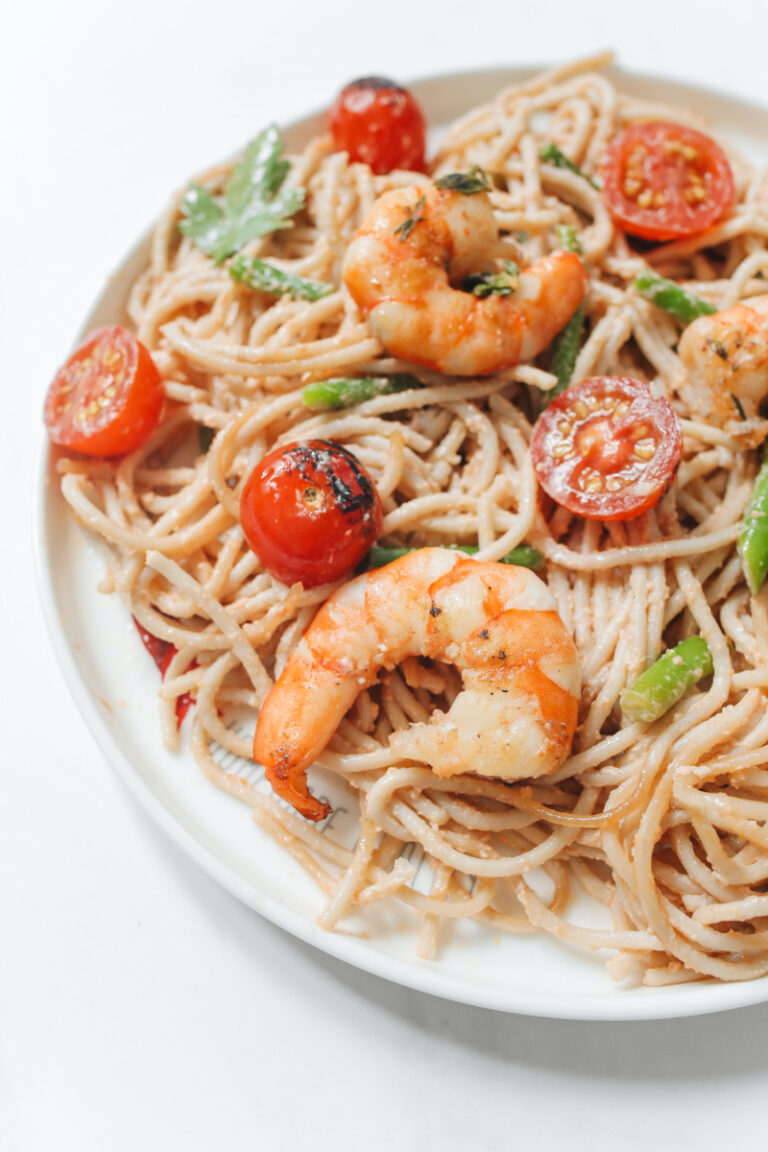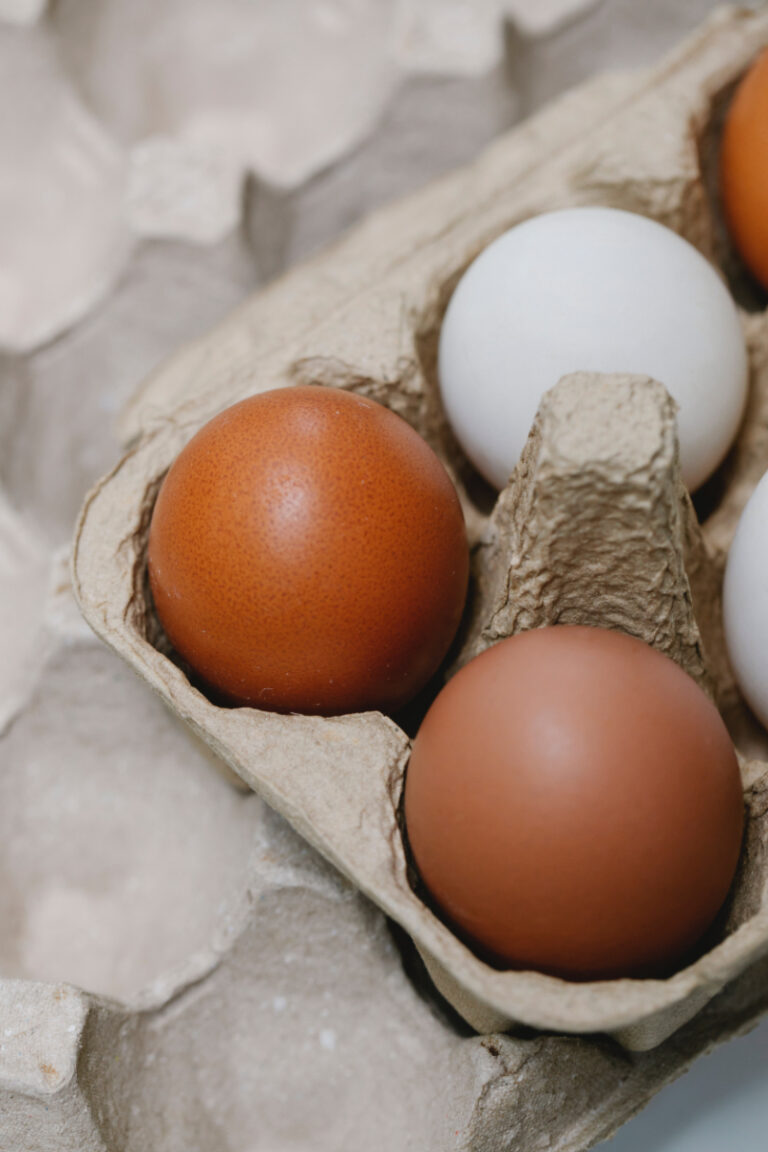Can You Compost Apple Cores? A Quick Guide to Composting Fruit Waste
Composting is a great way to reduce waste and create nutrient-rich soil for your garden. If you’re someone who enjoys eating apples, you may have wondered… can you compost apple cores?
The good news is that apple cores can be composted and can even make a valuable contribution to your compost heap or bin.
According to multiple sources, including Rolypig and Can You Compost That?, apple cores are considered organic material and can be broken down in a compost pile or bin.
In fact, whole apples are considered a “green material” and can decompose quickly. If you’re worried about the acidity of the apple cores, you can add white lime to reduce the acidity when composting large quantities.
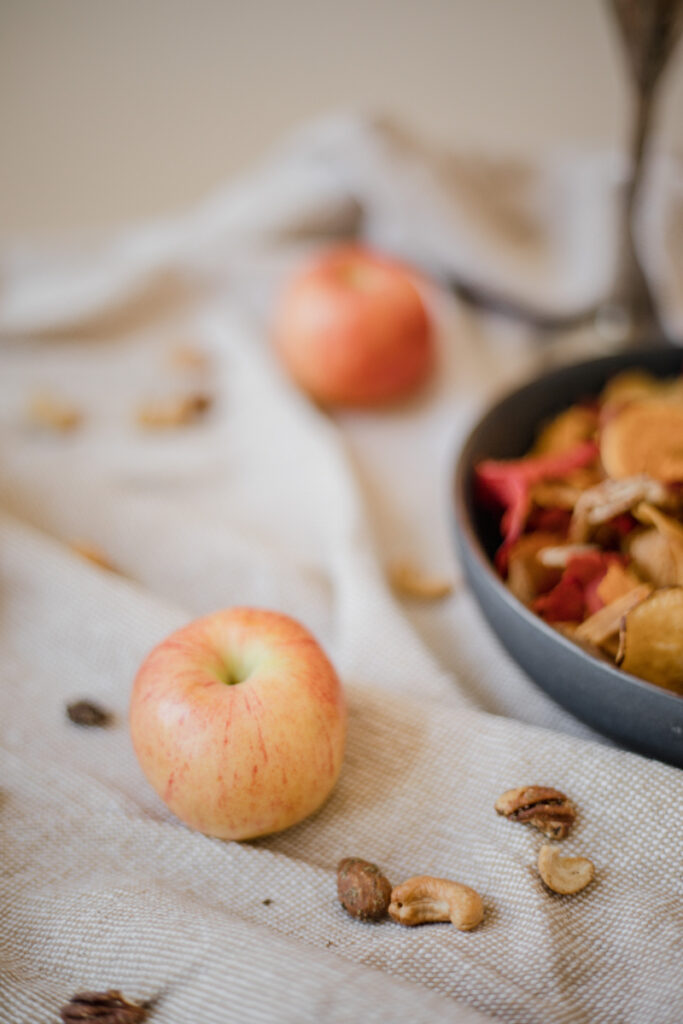
Understanding Composting
Composting is the process of breaking down organic matter into nutrient-rich soil. It is a natural process that happens when microorganisms, such as bacteria and fungi, decompose organic material.
Composting can be done on a small scale, such as in a backyard compost bin, or on a larger scale, such as in a commercial composting facility.
When you compost, you are helping to reduce the amount of organic waste that goes into landfills. Organic waste in landfills produces methane, a potent greenhouse gas that contributes to climate change.
Composting also helps to conserve resources by creating a valuable fertilizer that can be used in gardens and farms.
Composting requires a balance of carbon-rich “brown” materials and nitrogen-rich “green” materials. Brown materials include things like leaves, straw, and paper, while green materials include things like food scraps and grass clippings. The ideal ratio of brown to green materials is about 3:1.
It’s important to keep the compost pile moist, but not too wet. Too much moisture can cause the pile to become anaerobic, which means that there is not enough oxygen for the microorganisms to thrive.
This can lead to a foul odor and slow down the decomposition process. On the other hand, if the pile is too dry, it will not decompose properly.
By composting apple cores, you can help to reduce waste and create a valuable resource for your garden or plants.
Apple cores decompose relatively quickly, usually within two months, and can be added to a composting bin along with other fruit and vegetable scraps.
It’s a simple way to make a positive impact on the environment while also improving the health of your plants.
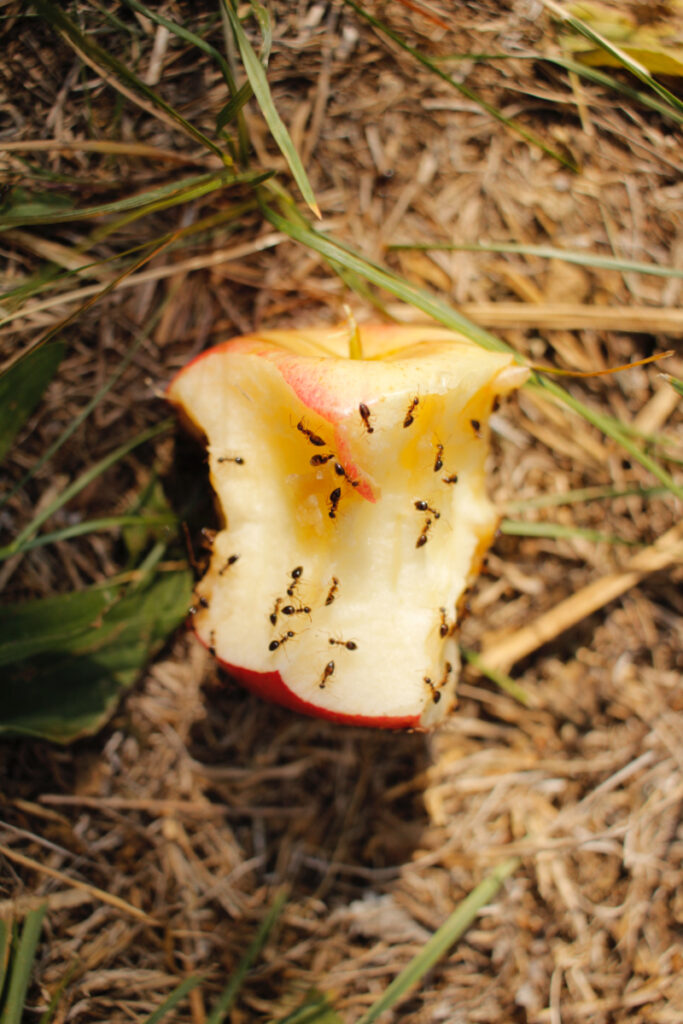
What Can Be Composted
Composting is a great way to reduce waste and create nutrient-rich soil for your garden. When it comes to composting apples, there are a few things to keep in mind.
First, it’s important to note that the entire apple can be composted, including the core and apple seeds and apple peels. However, if you’re using a cold composting method, it’s best to chop the apple into smaller pieces to help it break down faster.
In addition to apples, there are many other kitchen scraps and yard waste you can add to your compost pile. Here are some examples:
- Fruit and vegetable scraps – banana peels!
- Coffee grounds and tea bags
- Eggshells
- Grass clippings and leaves
- Paper and cardboard (shredded or torn into small pieces)
- Wood chips and sawdust (from untreated wood)
On the other hand, there are some items that should not be composted, as they can attract pests or slow down the composting process. Here are some examples:
- Meat, dairy, and bones
- Fats, oils, and grease
- Pet waste
- Diseased plants
- Weeds that have gone to seed
By sticking to these guidelines, you can create a healthy and productive compost pile that will benefit your garden for years to come.
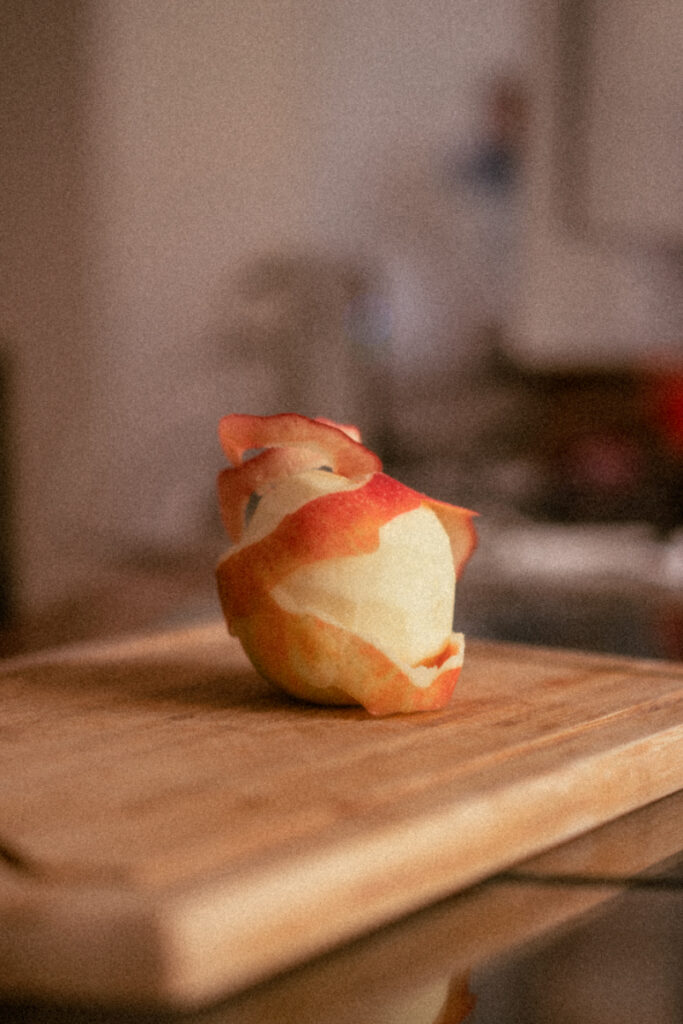
Apple Cores and Composting
When it comes to composting, old apple cores are a common household item that often gets thrown away. However, composting apple cores can be a great way to reduce food waste and create nutrient-rich soil for your garden.
Benefits of Composting Apple Cores
Composting apple cores can provide several benefits for your garden and the environment. First, it reduces food waste and prevents it from ending up in landfills, where it can produce harmful greenhouse gases.
Instead, composting allows apple cores to break down naturally and create nutrient-rich soil that can be used to grow healthy plants.
Additionally, composting apple cores can help improve soil structure and water retention, which can lead to healthier plants and better yields.
Apple cores are rich in nutrients such as potassium, phosphorus, and calcium, which are essential for plant growth and development.
How to Compost Apple Cores
Composting apple cores is a simple process that can be done in a compost bin or pile. Here are the steps to follow:
- Collect apple cores: Collect apple cores from your kitchen and place them in a container. You can also collect apple cores from other sources, such as farmers’ markets or orchards.
- Add other organic materials: Add other organic materials to your compost pile or bin, such as leaves, grass clippings, and vegetable scraps. This will help create a balanced mix of carbon and nitrogen, which is essential for the composting process.
- Layer the apple cores: Layer the apple cores on top of the other organic materials in your compost pile or bin. Make sure to cover the apple cores with other materials to prevent pests and odors.
- Turn the compost: Turn the compost pile or bin regularly to help aerate it and speed up the composting process. This will also help distribute the apple cores throughout the compost.
- Use the compost: After several months, the compost should be ready to use in your garden. Spread it around your plants to provide them with nutrients and improve soil structure.
In conclusion, composting apple cores can be a great way to reduce food waste and create nutrient-rich soil for your garden.
By following the steps outlined above, you can easily compost your apple cores and enjoy the benefits of healthier plants and a more sustainable lifestyle.
Common Misconceptions About Composting
Composting is a simple way to reduce waste and create nutrient-rich soil for your organic garden. However, there are many misconceptions about composting that can prevent people from trying it out.
Here are a few common misconceptions about composting that you should know:
Misconception 1: Composting is difficult and time-consuming
Many people think that composting is a complicated process that requires a lot of time and effort. However, composting can be as simple as throwing your food scraps into a bin and letting nature do the work.
While it is true that some composting methods require more attention and effort, there are also many low-maintenance methods that are perfect for beginners.
Misconception 2: Composting smells bad
One of the biggest concerns people have about composting is the smell. However, if done correctly, composting should not produce any unpleasant odors.
The key is to maintain the right balance of carbon-rich and nitrogen-rich materials in your compost bin. Carbon-rich materials like leaves and paper help absorb odors, while nitrogen-rich materials like food scraps and grass clippings provide the nutrients that help break down the compost.
Misconception 3: You can’t compost certain foods, like apple cores
Another common misconception about composting is that there are certain foods that can’t be composted. While it is true that some foods, like meat and dairy products, should not be composted because they can attract pests and create unpleasant odors, most food scraps can be composted, including apple cores.
In fact, apple cores are one of the best items of fruit scraps to compost because they break down quickly and provide valuable nutrients to the soil.
Misconception 4: Composting is only for people with gardens
Many people think that composting is only for people with gardens, but anyone can compost, regardless of where they live.
Even if you don’t have a garden, you can use compost to fertilize indoor plants or donate it to a community garden. Plus, composting is a great way to reduce your carbon footprint and help the environment.
By debunking these common misconceptions about composting, we hope to encourage more people to give it a try. Composting is an easy and effective way to reduce waste and create nutrient-rich soil for your plants.
In Conclusion
Based on the research, leftover apple cores can be composted without any issues. They are considered green materials and decompose quickly in a compost pile.
However, it is important to note that adding too many apple cores to the compost pile can make it more acidic. In such cases, adding hydrated white lime can help balance the pH levels.
Composting apple cores is not only beneficial for the environment but also for your wallet. By composting your food waste, you can reduce the amount of trash you produce and save money on fertilizers and soil amendments.
So, the next time you finish eating an apple, don’t throw away the core. Instead, add it to your compost materials and watch as it transforms into nutrient-rich soil that can help your plants thrive.
Frequently Asked Questions
Q: Can you put rotten apples in compost?
A: Yes, you can compost rotten apples along with other fruit leftovers. Rotten apples will break down in compost just like fresh apples.
However, it is important to remove any moldy or diseased parts of the apple before composting, as this can spread disease to your compost pile.
Q: Can you compost orange peels?
A: Yes, you can compost orange peels along with other fruit and vegetable scraps. Orange peels are a good source of nitrogen and will break down quickly in compost.
However, it is important to cut the peels into small pieces before adding them to your compost pile to help them break down faster.
Q: What fruits cannot be composted?
A: Most fruits can be composted, but there are a few exceptions. Citrus fruits such as lemons, limes, and grapefruits are acidic and can slow down the composting process.
Pineapple and papaya are also acidic and should be added sparingly. Avocado pits and mango seeds take a long time to break down and should be avoided.
Q: Can you compost dragon fruit skin?
A: Yes, you can compost dragon fruit skin along with other fruit and vegetable scraps. Dragon fruit skin is a good source of fiber and will break down quickly in compost.
However, it is important to cut the skin into small pieces before adding them to your compost pile to help them break down faster.
Q: How to compost fruits and vegetables?
A: To compost fruits and vegetables, chop them into small pieces and add them to your compost pile.
It is important to balance the carbon-rich materials (such as leaves or wood chips) with the nitrogen-rich materials (such as fruit and vegetable scraps) to ensure that your compost pile breaks down properly.
Turn your compost pile regularly to ensure that it is well-aerated and moist.
Q: Can you compost meat?
Although it’s possible to compost meat, not all the time it is recommended. Meat should not be added to compost piles because it can attract animals and create unpleasant odors.
If you want to compost meat, the best approach is to create a “hot compost pile” using materials like straw, leaves, and manure.
This type of compost pile needs to be at least 3 feet (1 meter) tall and can reach temperatures of more than 140°F (60°C). This ensures that all the pathogens in the meat are destroyed before it breaks down into soil.

